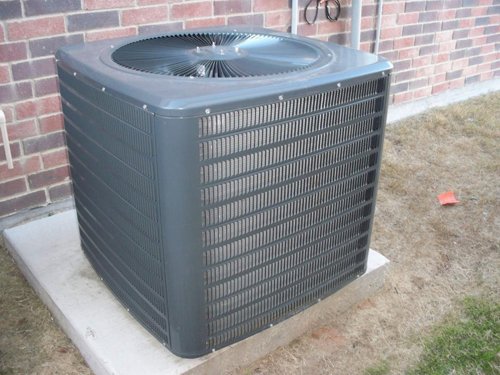How to Determine What HVAC Size You Need
When it’s time to replace your HVAC system, one of the major factors to consider is the size of the new unit. A unit that’s too small won’t be able to effectively heat or cool your home, while a unit that’s too large won’t run efficiently, which will drive up your energy bills. You want to make sure that the unit you choose is just right for your home.
How Many Tons Do You Need?
Heat pumps and air conditioners are measured in tons, but this doesn’t refer to the weight of the unit but rather, how much cooling power the unit has. Standard residential HVAC units run from 1-5 tons. If your home needs a unit larger than 5 tons, then you’ll probably need to get two units.
How do you know how many “tons” of cooling power your home needs? Well, that depends on several factors. The first and most obvious factor is the size of your home. In general, a larger home will need a larger HVAC unit.
Most living spaces can be divided into three basic shapes: square, rectangle, or triangles. To calculate the total square area, add together the area measurements for all the rooms and spaces on each floor, use the following formulas:
- Square/Rectangles: length x width
- Triangles: (length x width) / 2
Once you have the total square area, consult this chart from the federal EnergyStar program, to determine how much power your AC unit will need to produce. The load size of air conditioning systems is measured in tons, where 12,000 BTUs = 1 ton. For example, if you calculate a new system would need to produce 36,000 BTUs, then you would be shopping for a 3-ton AC unit (36,000/12,000).
Other Considerations
Of course, this calculation is only a starting point. There are other variables to take into consideration. Chief among these factors is the R-rating of the insulation in your home. A poorly insulated 800 square-foot space will require more cooling power than a tightly sealed space of the same size. Other things to think about include: south- or north-facing parts of your home, the local climate, or unfinished spaces that you plan on building out.
Another important factor is the climate zone that your home is in. Here in Florida, we’re in Climate Zone 1. That means we need more cooling power per square foot than someone who lives in Virginia (Zone 3). Additionally, we don’t need as much heating as those who live to the north.
Many other individual details of your home affect what size unit you need. For instance, how many windows do you have and what directions do they face? How much insulation is in your attic? What types of lighting are used in your home? How high are your ceilings? Do you have skylights? All of these factors can make your home easier or harder to keep at a comfortable temperature.
Ultimately, the best way to determine what size HVAC unit is right for your home is to have your house evaluated by a licensed HVAC professional. They can take into account all of the individual factors affecting your home so you don’t end up wasting money and so that your investment in a new HVAC system will serve you most efficiently and cost-effectively.


